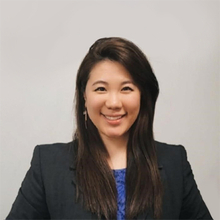
최신기사
[전문가 칼럼] 6가지 MZ세대 커리어 유형: (3) ‘성찰 중인 이상주의자’
지난번 소개한 ‘열정적인 창업가’와 ‘발전하는 학습인’에 이어, 세 번째로 소개할 MZ세대 커리어 유형은 ‘성찰 중인 이상주의자’(Introspective Idealist)다. 이들은 삶의 질을 추구하고 균형을 위해 직장을 그만두는 MZ세대다. 이 유형의 인재들은 새로운 포지션으로 연락하면 ‘본인이 현재 재충전을 위해 장기휴가 중이니 몇 개월 후에 꼭 다시 연락 달라’고 하는 경우가 많다. MZ세대에게는 일과 삶의 균형이 매우 중요하다. 40%는 “좋아하지 않는 직장에서 일하느니 차라리 실업자가 되겠다”는 의견을 갖고 있으며, 35%는 일단 퇴사부터 하기도 한다. 사실 이들은 결코 하루아침에 퇴사를 결심한 것은 아니다. 과도한 업무와 반복되는 일상이 가져오는 우울·불안·무기력으로 고통스러워하고, 번아웃을 극복하기 위해 퇴사하는 것이다. 열정적이던 인재가 번아웃돼 회사를 떠나고, 매번 새로운 직원을 충원하기 위해 채용 및 교육시간 투자를 반복해야 한다면 기업에는 엄청난 부담이다. 꼭 이들이 떠나진 하더라도, 그들의 ‘조용한 퇴사’(Quiet Quitting)는 생산성과 기업 문화에 상당히 부정적이다. 세계경제포럼(WEF)에 따르면, 번아웃으로 인한 과도한 스트레스와 정신질환 치료로 인해 매년 1900억 달러 규모의 의료비가 발생하며, 잦은 퇴사와 업무 생산성 하락으로 인한 글로벌 손실은 3220억 달러를 넘어서는 것으로 집계됐다. 그렇다면 번아웃을 어떻게 효과적으로 극복하고, 능동적으로 방지할 수 있을까. 직원들의 번아웃을 막으려면 합리적인 업무량, 보람된 일, 자율성 보장 등 근무환경을 꾸준히 개선하며, 번아웃을 겪는 직원들에게는 안식휴가와 같은 휴식을 제공해 충전하도록 하는 것이 중요하다. 안식휴가란 7년마다 교수들이 일년간 온전히 쉬면서 새로운 활력을 얻는 안식년처럼, 일정 기간 동안 회사 업무에 부담없이 휴가를 쓸 완전한 휴식기회를 부여하는 제도를 말한다. 이미 많은 기업들이 안식휴가 제도를 운용하고 있다. 어도비는 5년 근무 시 4주간의 안식휴가, 인텔은 7년 근무시 8주간의 안식휴가를 제공하고 있다. 안식휴가제도가 부담스러운 소규모 기업일 경우 무급 안식휴가를 제공하기도 한다. 업무 부담으로부터 완전히 해방된 시간을 만들어주는 것이 핵심이다. 안식휴가 외에 색다른 업무 환경으로 재충전과 성찰을 지원하는 회사들도 있다. 파타고니아는 2달간의 환경 인턴십, 구글은 6주간 비영리기관 재능기부 기회를 제공한다. 다양한 교육과 의미 있는 봉사활동으로 보람을 느낀 직원들이 초심으로 돌아가도록 유도하는 셈이다. 휴식으로 삶의 에너지를 재충전하고, 새로운 환경에서 영감을 얻고 자기 성찰한 직원들은 애사심도 높아진다. 이에 따라 복귀 후 업무생산성을 높이는 데 기여할 수 있다. 결국 안식휴가는 개인의 재충전 뿐 아니라 기업과 팀에게도 긍정적인 에너지와 활력을 가져다줄 수 있는 것이다. 팀원들은 휴가에 들어간 팀원의 빈자리를 역할분담을 통해 채워주고, 상사의 업무 경험을 통해 발전과 성장을 느껴볼 소중한 기회를 얻게 된다. 아무것도 하기 싫은 지금 이 피로와 무기력을 잠재우고, 무엇이든 할 수 있을 것 같았던 그때 그 초심을 깨워주는 기업. 소진된 몸과 마음을 성찰과 보람으로 충전해주는 기업이라, 생각만 해도 너무 설레지 않는가. 스텔라김 / HRCap, Inc. 상무 (Chief Marketing Officer) ━ [Expert Column] 6 MZ Generation Career Categories: (3) ‘Introspective Idealists’ Self-Reflection and Recalibration for Work-Life Balance As a continuation from our last two columns introducing the “Eager Entrepreneurs” and “Refined Reskillers,” the third MZ Generation Career Category is the “Introspective Idealists.” These are the MZ Generation employees who prioritize quality of life and resign to achieve greater work-life balance. When asked if they are open to consider a new job opportunity, many from this category often ask the recruiters to reach out again in a few months because they are currently on a sabbatical leave to recharge and recalibrate their lives. Work-life balance is extremely important for the MZ Generation. 40% of MZ Generation shared that they would rather be unemployed than unhappy working in a job they didn’t like, and 35% quit without having another job lined up. In fact, the MZ Generation are not making these decisions hastily overnight. They are ultimately resigning to overcome burnout, as the excess workloads and routine lifestyles have gradually caused depression, anxiety, and fatigue. Companies will face significant loss if they have to constantly invest in recruiting and training new employees every time a once-passionate talent resigns from burnout. Even if burnt out employees do not leave, their ‘Quiet Quitting’ has an incredibly negative impact on business productivity and the corporate culture. The World Economic Forum estimated that excessive stress and mental illnesses from burnout annually amount to $190 billion in health care costs, and the global loss from high turnover and reduced work productivity exceeds $322 billion. How can we effectively overcome and proactively prevent burnout? Companies must improve the current working environment by assigning reasonable workload, supporting fulfilling work, and empowering autonomy. It is also essential to allow employees experiencing severe burnout to take time off through sabbatical leave or vacation time. A sabbatical leave is a corporate benefit program that allows employees to take complete time off to recharge without any burden or restrictions. This originates from academic institutions allowing tenured professors to go on sabbaticals every 7 years or so to conduct personal research or to truly refresh. Many companies already offer diverse sabbatical programs to their long-term employees. Adobe offers a 4-week sabbatical for 5 years of employment and Intel offers 8 weeks for 7 years of employment. Smaller business entities with less structure and infrastructure even allow employees to take unpaid sabbatical to fully recharge. The key is to completely offload and free the employees from work so that they can reflect, recalibrate, and recharge. Organizations are also able to retain the ‘Introspective Idealists’ by providing positive stimuli and new working environments. Patagonia offers a 2-month environmental internship program, and Google provides a 6-week non-profit volunteering program. Through self-development and rewarding service, employees are highly engaged to recalibrate and return to their roots. These valuable experiences and time away from work allow employees to fully reflect and recharge, gain new-found inspiration and skills, and become even more loyal and committed to grow with the organization long-term. Upon their return, they bring infectious positive energy and vitality to the entire team. Therefore, sabbaticals not only benefit the individual, but also strengthen the organization by allowing the team to step in and step up to support the vacancy. This motivates greater trust, communication, collaboration, productivity, and development. A company that takes us from feeling like we can’t do anything, to believing we can accomplish everything. An organization that nourishes and awakens our soul, mind, and body. The sheer thought of joining such a company is refreshing and enticing. Stella H. Kim, SPHR HRCap - Chief Marketing Officer & Global VP 전문가칼럼 HRCap 칼럼 MZ세대 커리어 스텔라김 StellaKim HR 커리어유형
2023.06.14. 21:08
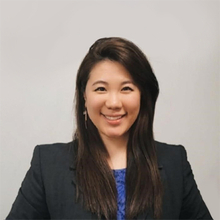
[전문가 칼럼] 6가지 MZ세대 커리어 유형: (2) ‘발전하는 학습인’
지난달 소개한 ‘열정적인 창업가’에 이어 두 번째로 소개할 MZ세대 커리어 유형은 ‘발전하는 학습인’(Refined Reskillers)이다. 이들은 자기자신의 학습과 발전을 위해 직장을 그만두는 MZ세대다. 이 유형의 인재들은 새로운 포지션으로 연락하면 ‘본인이 곧 석박사과정을 시작할 계획이니 리크루터 입장에서 어느 학교가 더 좋을지 조언해주고 앞으로 네트워킹을 통해 멘토링 해달라’고 하는 경우가 많다. MZ세대에게는 성장이 매우 중요하다. 학습과 교육을 통해 변화하고, 지속적인 성장을 하는 것이 매우 중요하다고 믿는다. MZ세대의 30% 이상이 몸값을 높이기 위해 대학원에 진학하는 것을 고민하고 있다. ‘교육과 학습에 의한 지속성장’이라는 동기부여로 자아실현을 이루고자 하는 것이다. 팬데믹 이후 생겨난 온라인·하이브리드 교육관련 프로그램 등을 사용하는 경우도 많아졌다. 링크드인(LinkedIn) 조사에 따르면 MZ세대의 온라인 강의 수강시간은 다른 세대보다 50% 더 많았다. 76%는 자기발전, 69%는 승진, 그리고 42%는 이직을 위한 중요 스킬을 학습하려고 온라인 강의를 수강하고 있었다. 왜 직장업무에 매진하다 더 공부하기 위해 퇴사할까. 대부분은 커리어 발전(Career Advancement) 혹은 커리어 전환(Career Change)을 이유로 꼽는다. 즉 자기계발에 열심인 인재를 유치하고, 유지하려면 승진 혹은 직무전환을 지원할 수 있는 사내교육시스템을 제공해 줘야 한다는 결론을 내릴 수 있다. 이미 많은 기업들이 경력경로(Career Pathing) 설계 프로그램을 제공하고 있다. 경력경로 설계 프로그램이란, 직원들이 현재 직위나 직무에서 본인들이 희망하는 곳으로 이동하고 발전할 수 있게 구체적인 로드맵을 제공하는 프로세스다. 개인의 경력개발과 회사의 성과향상이 부합하면서 동반성장할 수 있는 상생전략이다. 커리어 발전을 추구하는 우수인재에게는 사내교육을 통해 경영자·전문가 프로그램과 빠른 승진경로 기회를 주고, 커리어 전환이 필요한 이들에게는 교육과 수평적인 인사이동을 통해 새로운 업무에 도전해 더 적합한 직무를 찾을 수 있도록 하는 것이 핵심이다. 필요한 역량을 키워줄 뿐만 아니라, 멘토링과 지속적인 피드백으로 꾸준히 발전할 수 있는 기회를 주는 것이다. 내부 기업 교육 문화를 강화시키고 유능한 인재를 유지하면, 외부에서 투자하는 것보다 상당히 많은 시간과 비용을 절약할 수 있다. 경력개발에 관심이 큰 MZ세대를 채용할 때 효율적인 유치 전략이기도 하다. 기업 내 우수인재에게 대학원 학비를 지원하고, 공부를 끝낸 후 의무근무기간을 부여하거나 퇴사시 지원금을 환불하는 조건으로 우수인재교육 프로그램을 운영하는 기업들이 많다. 하지만 이는 ‘발전하는 학습인’을 위한 좋은 방법이라고는 할 수 없다. 더 크고 좋은 경쟁사가 그들을 스카우트하기 위해 사인온 보너스(sign-on bonus)를 제공하는 상황이 흔하기 때문이다. 떠나가는 인재에게 조건적인 투자를 하는 것보다, 우수 인재가 내부적으로 만족하고 지속 성장할 수 있게 기업 교육 문화를 강화하는 것이 더 중요한 이유다. 트랜잭셔널(Transactional·업무, 거래의) 투자보다는, 트랜스포메이셔널(Transformational·변혁적) 투자가 그들의 마음을 울릴 수 있기 때문이다. 스텔라 김 HRCap, Inc. 상무(Chief Marketing Officer) ━ [Expert Column] 6 MZ Generation Career Categories: (2) ‘Refined Reskillers’ Reskilling for Career Advancement or Career Change; Career Pathing Programs to Attract and Retain Talent Continuing on from last month’s column about the “Eager Entrepreneurs,” our second MZ Generation Career Category is the “Refined Reskillers,” who resign for their own learning and development. When asked if they are open to consider a new career opportunity, many from this category share that they are about to start an MBA program from their dream schools. They instead ask for an executive recruiter’s insight on which school to accept, and request to stay in touch for continued mentoring and networking. Growth is extremely important for the MZ Generation. They believe it is critical to grow and transform through education and continued learning. More than 30% of the MZ Generation are considering applying to graduate school in order to strengthen their market value. They are motivated to gain greater self-realization through continuous growth and proactive learning. Many are actively leveraging various online/hybrid education programs created since the pandemic as well. According to a LinkedIn study, the MZ Generation logged 50% more hours watching online courses than any other generation. 76% took online courses for greater self-development, 69% for an accelerated promotion, and 42% for a complete career change. Why are employees resigning to pursue higher education? Most cite career advancement or career change as their main reason. Therefore, in order to attract and retain the Refined Reskillers who are passionate about self-development, organizations must design and provide corporate training systems to actively support promotions or internal job changes. Many companies already offer such career pathing programs. Career pathing is a process of providing employees with a detailed career roadmap to help them advance or transition from their current position to where they wish to be. It is a win-win strategy that drives both individual career growth and company business performance. Organizations should provide in-house leadership/professional training and fast-track development programs for top performers eagerly seeking career advancement. Organizations should offer skills training and internal mobility opportunities for dedicated employees looking to find better-fitted career changes. This will allow Refined Reskillers to not only gain the skills needed to continuously grow, but also achieve greater self-realization through mentorships and constructive feedback on their work. Building a strong culture of learning can help retain talented employees, while further saving considerable time and cost from hiring externally. In fact, career pathing is an efficient strategy to attract MZ Generation employees who are highly interested in continuous career development with the company, beyond the roles they are currently interviewing for. Many organizations offer corporate tuition sponsorship for top performers, as a means to develop and retain strong talent. The condition is that these employees must return post-graduation and serve the contracted amount of time, or else they would be responsible for paying back the tuition. However, this is not a sustainable way to retain the Refined Reskillers. Larger and stronger competitors can simply scout these top candidates by offering significant sign-on bonuses to free them from their payback conditions. Rather than making conditional investments to retain talent, companies must organically strengthen their in-house Learning & Development programs to engage and drive top performers for greater growth. After all, only transformational investments in their growth, not transactional investments, can truly touch their soul. Stella H. Kim HRCap - Chief Marketing Officer & Global VP HRCap 전문가칼럼 칼럼 MZ세대 커리어 스텔라김 Stellakim
2023.05.17. 21:15
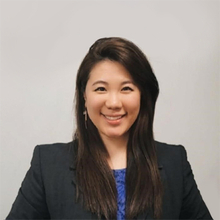
[전문가 칼럼] 6가지 MZ세대 커리어 유형: (1)'열정적인 창업가'
작년 48% 이상의 미국 MZ세대(밀레니얼+Z세대)가 2년을 채우지 못한 채 이직했다. 앞으로는 노동시장에서 MZ세대의 역할이 더욱 중요해질 전망인데, 어떻게 해야 기업들은 이들을 유치하고 유지할 수 있을까. 글로벌 HR컨설팅 및 서치펌인 HRCap은 하루 500명 이상의 후보자들과 소통하면서 그들의 진로 고민을 듣고, 경력과 성향을 파악하며, 새로운 기회를 제시하고 있다. 2025년 글로벌 노동시장의 60%를 차지할 MZ세대 후보자들을 분석해 보면, 이들은 주로 6개 유형으로 정리할 수 있었다. 이번 칼럼부터는 커리어 유형별 MZ세대 성향을 분석하고, 그들의 가슴을 뛰게 할 유치 및 유지 솔루션을 제공하고자 한다. 첫 번째 유형인 '열정적인 창업가'(Eager Entrepreneurs) 유형은 창업하기 위해 직장을 그만두는 MZ세대다. 이 유형의 인재들은 새로운 포지션으로 연락하면 '본인이 현재 창업 중이니 오히려 앞으로 함께할 수 있는 팀원 채용에 도움을 달라'고 하는 경우가 많다. MZ는 가장 창업가적인 세대라고 한다. 60% 이상이 창업을 희망하며, 미국 창업 및 컨설팅 노동시장 절반 이상이 MZ 세대다. 이들은 왜 안정적인 직장을 떠나 위험부담을 안고 창업을 하려고 할까? 그것은 이들이 가진 열정과 가치, 독립성과 융통성 때문이다. 금전적인 것보다 자율적이고 가치로운 창조, 도전적인 성취를 통한 꾸준한 성장을 더욱 중요하게 생각하는 것이다. 2022년 마이크로소프트(MS) 리서치에 따르면, 80% 이상의 MZ 창업가들은 휴가 중에도 일을 계속 한다고 한다. 사회봉사 및 기부를 통해 82%가 회사를 더 확장할 수 있었고, 52%는 정신건강에 긍정적 영향을 미쳤다. 다양한 환경에서 새로운 영감과 자극을 받고, 스스로 갈고닦은 길을 걸으며 더 깊은 의미와 사명감, 그리고 시너지와 소속감을 느끼는 것이다. 즉 이들에게는 '워라밸'(work-life balance, 일과 생활의 균형) 보다 '워라인'(work-life integration, 일과 생활의 융합)이 더 중요한 셈이다. 또 일을 통해 삶의 원동력을 찾고 가치로운 라이프 스타일을 가꾸고 싶어한다. 열정적인 창업가들을 적극적으로 유치하고, 지속해서 유지하기 위해 이미 많은 기업들이 사내에 Corporate Venture Capital, Innovation Lab, Incubation Program 등을 설립해 이들이 열정을 발휘할 수 있는 환경조성에 나서고 있다. 엔터프러너(Entrepreneur, 창업가)가 되기 위해 떠나는 인재들에게 인트라프러너(Intrapreneur, 사내기업가)의 도전 환경과 성장 기회를 제공하는 것이다. 다만 이들이 과제에 전념하고 전문성을 돋보일 수 있도록 충분히 지원하고, 의미 있는 성과를 낼 수 있도록 기다려주는 것이 필요하다. HRCap이 '새로운 이직기회를 고려할 의향이 있냐'는 질문을 했을 때, 팬데믹 이전에는 10명 후보자 중 6명이 답변했지만, 이제는 10명 모두 어떤 방식으로든 답변해 온다. 이직 가능성이 그만큼 커졌다는 얘기다. 앞으로 MZ세대 노동시장 비중은 더 커질 전망인 만큼, 기업들은 이들의 유형을 잘 파악해 인재를 유치할 뿐만 아니라, 도전과 발전을 통해 유지하고 가치를 함께 창출하도록 노력하길 권고하고 싶다. ━ [Expert Column] 6 MZ Generation Career Categories: (1) ‘Eager Entrepreneurs’ Work-Life Integration Over Work-Life Balance, Offer Intrapreneurship Growth Opportunities Last year, more than 48% of MZ Generation (Millennials + Generation Z) in the United States changed jobs before hitting the 2 year mark. With the MZ generation projected to make up 60% of the global labor market by 2025, global organizations need to strategize to attract and retain them effectively. At HRCap, a Global Executive Search & HR Consulting firm, we interact with over 500 candidates daily. We listen to their career goals and preferences, understand their unique background and expertise, and provide them with stronger growth opportunities at our client organizations. After analyzing the MZ Generation candidate feedback, we found that they fall into six unique career categories. From this column onwards, we will introduce and differentiate the characteristics across the MZ Generation with unique solutions to attract and retain them. The first career category of the MZ Generation is the "Eager Entrepreneurs", who resign to start their own businesses. When asked if they are open to consider a new career opportunity, many from this category share that they are starting their own business and would like our help hiring their own team. As the “most entrepreneurial generation ever”, the MZ Generation make up the majority of the U.S. independent workforce, and more than 60% wish to start their own business. Why are these talents taking a risk to leave their stable jobs to build a start-up? It is because their passion and value motivate them to pursue achievement with autonomy, value creation, and continuous growth, simply over money. According to a 2022 Microsoft research, 80% of the MZ entrepreneurs continue to work while on vacation. By embedding social responsibility into their business mission, 82% achieved greater business growth and 52% saw improvement in their mental health. The Eager Entrepreneurs gain new inspiration from various environments and feel greater vocational calling and sense of belonging by building and walking their own paths. For them, work-life integration is far more valuable than work-life balance. They are motivated by doing what they love, and their work allows them a meaningful lifestyle. To actively attract and retain the Eager Entrepreneurs, many companies have already launched Corporate Venture Capitals, Innovation Labs, and Incubation Programs to enable such a mission-based environment. By doing so, they are able to engage and retain entrepreneurial employees to take on high growth opportunities as intrapreneurs instead. That said, companies must be patient and supportive so the Eager Entrepreneurs can truly focus, add value, and innovate with the organization. When HRCap asked candidates if they were willing to consider a new job opportunity before the pandemic, only six out of ten candidates responded. Now, all ten candidates respond in some way whether they are actively looking, casually exploring, and willing to network for future opportunities. Job transitions are increasingly common. As the MZ Generation begins to enter and lead the future labor market, organizations must study the different nuances of the six career categories to best understand, attract, and retain talent for greater collective growth. Stella H. Kim HRCap - Chief Marketing Officer & Global VP 전문가칼럼 칼럼 HRCap 스텔라김 STELLAKIM STELLA KIM 헤드헌터 기업 MZ세대 채용 비즈니스
2023.04.19. 21:41
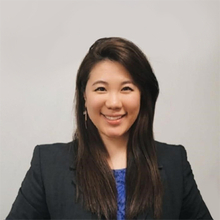
[전문가 칼럼] "AI vs EI - 이제는 감성지능"
감성지능 없이 인공지능은 무의미 인공지능(Artificial Intelligence)은 우리의 삶을 더 편하고 때로는 풍성하게 해주고, 업무 처리도 더 빠르고 정확하며 효율적으로 해준다. 데이터를 통해 미래지항적인 제품과 서비스 혁신도 주도하며, 자동화로 효율성을 높이고 위험을 완화해준다. 다만 인공지능의 본격활용으로 많은 이들이 본인의 일자리가 없어질 것이라고 불안해하고 있고 실제로 향후 불필요한 잡포지션으로 퇴사 정리된 이들도 많다. 세계경제포럼은 기술 및 자동화로 인해 앞으로 8500만 개의 일자리가 없어질 것으로 전망했고, 현재 업무의 30%를 기계가 하고 70%를 사람이 하고 있다면, 향후 몇년간은 50대 50으로 바뀔 것으로 예측했다. Tech-Centric 분야 중요성이 높아진 지금, 데이터 리터러시(Data Literacy)를 강화해 데이터를 이해하고 분석하고 활용할 줄 알아야 한다. 다만 인공지능만으로는 부족하다. 이제는 DX 관련 기술을 강화하면서 감성지능(Emotional Intelligence)으로 차별화 되어야 한다. 감성지능은 본인 혹은 타인의 감정을 인식하고 통제하고 관리할 수 있는 능력이다. 세계경제포럼이 2020년 이후부터 감성지능을 4차 산업혁명에 필요한 10대 기술 중 하나로 선정한 만큼 Human-Centric 분야의 중요성도 높아지고 있다는 증거다. 2021년 피플매니지먼트(People Management) 조사에 따르면 43%의 직원들이 매니저 때문에 퇴사하고, 53%가 매니저 때문에 이직을 결심한다. 반면 38%는 매니저가 좋아 회사에 더 오래 다녔고, 48%는 매니저와의 편한 소통을 좋아하며, 85%가 좋은 매니저 덕분에 행복하게 일한다고 밝혔다. 직원들은 공감과 동기부여로 이끄는 리더를 존중하고, 그런 리더와 함께 일과 생활의 활력을 느껴 성장하고 협업해 혁신을 촉진할 수 있는 것이다. 즉 인재유치 및 유지 성공의 열쇠는 소통과 융합을 중요시하는 감성지능이 높은 리더를 채용하는 것이다. 기업들은 채용 첫 단계서부터 후보자의 리더십과 감성지능을 깊이 있게 검증할 수 있는 인터뷰 질문을 실시하고 있고, 미국 기업의 80%가 최고경영자 채용 전 Leadership Assessment(리더십 진단서)를 통해 감성지능 평가에 활용하고 있다. 글로벌 HR컨설팅 및 서치펌인 HRCap도 뉴욕 컬럼비아대학원과 협업해 개발한 'HRCap Proprietary Leadership Assessment'으로 리더가 갖춰야 할 3가지 핵심역량(자기인식·학습능력·열정)에 대한 사전 진단을 통해 고객사의 기업문화와 적합한지, 또 고객사가 요구하는 필요한 성향을 가지고 있는지 미리 파악하고 고객 맞춤형으로 인재를 추천하고 있다. 사람이 해왔던 업무를 기계 혹은 기술이 더 빠르고 정확하게 대신 처리할 수 있게 되면서, 우리는 그 무엇보다 제일 귀하고 가치로운 상상과 표현의 양질의 시간을 벌 수 있게 됐다. 사람이 인공지능을 능가할 수는 없겠지만, 디지털 테크놀로지를 활용할 수 있으면 되고, 기계가 대체할 수 없는 영역에서는 오히려 감성지능의 역할이 더욱 중요해질 것이기에 감성지능을 집중적으로 키우면 된다. 불안이 아닌 설레는 마음으로 스스로에게 투자해 본인을 더 알아가고 존중하며, 기술과 감성을 전략적으로 아우르고, 사람의 마음을 잘 읽고 이해하며 움직일 수 있는 '감성지능이 높은 진정한 리더'로 거듭나 보는 것은 어떨까. 스텔라 김 HRCap, Inc. 상무 (Chief Marketing Officer) ━ “AI vs. EI? Artificial Intelligence is Meaningless Without Emotional Intelligence.” Artificial Intelligence (AI) makes our lives convenient and oftentimes more enriching, and allows us to complete tasks more quickly and accurately. It analyzes data to drive future-proofed products and service innovations, while improving efficiency, saving costs, and mitigating risks through automation. However, many are anxious and rather worried of being replaced by AI, while many have been recently laid off as their positions became unnecessary with greater digitalization and automation. The World Economic Forum predicted that 85 million jobs will be displaced as the workforce automates faster than expected, and that work will be divided between humans and machines equally (50:50) by 2025. As Tech-Centric fields become increasingly important, we need to strengthen our data literacy to understand, analyze, and leverage data. But AI is not enough. We must now continue to invest in DX (Digital Transformation) technologies, while further differentiating ourselves through Emotional Intelligence (EI). Emotional Intelligence is the ability to be aware of, control, and manage one’s emotions and those of others. The World Economic Forum ranked EI among the top 10 critical skills needed by 2020 to successfully transition during the 4th Industrial Revolution. This thereby demonstrates the rising importance of Human-Centric fields. According to the 2021 People Management survey, 43% of employees resigned because of their manager, while 53% looked to change jobs because of their manager. On the contrary, 38% of the respondents said they stayed in a job longer than intended because of a good manager, 48% can comfortably talk about their personal life with their manager, while 85% had greater workplace happiness due to a good manager. Employees respect leaders who lead with empathy and motivate with compassion. Such leaders know how to unlock greater potential with vitality for continuous growth and collaboration for stronger innovation. Therefore, the key to successfully attracting and retaining talent is hiring emotionally intelligent leaders who highly value communication and collaboration. Companies are now strategically asking interview questions that deeply screen for the candidates’ leadership style and emotional intelligence, all from the first recruitment steps. In fact, 80% of companies in the United States leverage Leadership Assessment tools to assess the EI of C-Suite executive candidates. At HRCap, a Global Executive Search & HR Consulting Firm, we differentiate client recruiting services with our HRCap Proprietary Leadership Assessment, developed in collaboration with the Columbia University of New York (Teachers College). We deeply understand the client’s future business agendas and corporate culture, proactively search for executive candidates with those critical expertise and cultural nuances, then assess their level of self-awareness, learning agility, and passion (the three most important qualities of effective leadership) to make a non-biased best-fit recommendation. As technologies take over to process our work more quickly and accurately, we should feel excitement, not anxiety. We are now given the invaluable gift of additional time for creative ideations and unique expressions. We will not be able to surpass AI’s Tech-Centric capabilities, but we may never need to. We need to learn how to utilize technology and focus on developing greater EI and Human-Centric skills. I invite us all to invest in ourselves to build greater self-awareness and appreciation, and lead and influence with empathy as genuine leaders with higher emotional intelligence. Stella H. Kim | HRCap - Chief Marketing Officer & Global VP HRCap 전문가칼럼 칼럼 취업 채용 기업 리더 리더십 스텔라김
2023.02.15. 14:55
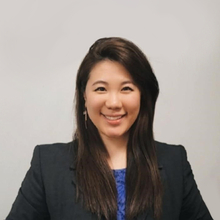
[전문가 칼럼] "기술은 미래의 자산, 미래는 오로지 학습"
급변하는 잡마켓에서 살아남으려면 개인도, 기업도 '학습민첩성' 필요 좋아하는 일과 잘하는 일, 열심히 일할 사람과 일을 잘하는 사람. 지금 잡마켓에서 구직자와 기업들의 최대 고민거리이자 핫이슈다. 어려운 질문이지만, 답은 단순하다. 구직자는 꾸준히 배울 수 있는 일을, 기업은 지속적 성장이 가능한 인재를 찾으면 된다. 기준은 '학습민첩성(Learning Agility)'이다. 학습민첩성은 새로운 상황에 잘 대처할 수 있는 능력이며, 변화하는 환경에서 꾸준히 새로 배우는 능력이자 자세다. 만약 업무처리가 빠르고 새로운 기술도 본인 것으로 만들 수 있는 인재와, 주어진 일을 열심히 하고 부족한 점을 항상 학습해 성장하려는 인재가 있다면, 기업은 학습민첩성이 높은 두 명 다 채용해야 한다. 코로나19 팬데믹은 전 세계 변화를 가속화했다. 변화를 받아들이고 신속히 대응한 기업들은 생존을 넘어 오히려 더 큰 성장을 했다. 지난 3년간 전 세계 기업들이 인재 확보 및 유치에 수많은 노력을 해왔다. 다만 이제 인재투자도 미래지향적으로 해야 한다. 그 인재가 현재 갖고 있는 스킬과 학습민첩성을 동시에 파악해 신속히 채용하고, 지속적으로 육성해야 한다. 채용을 단순히 인재를 고용하는 수단으로 보지 않고, 기술에 투자하는 미래지향적 경영전략으로 삼아야 한다. 현재 필요한 기술 뿐 아니라 미래 시장 동향을 예측해 수요가 예견되는 기술분야에 조직확충, 조직역량 개발 등 선제적 투자를 해 기술 격차를 줄이는 것이 필요하다. 2015년 IBM Professional Development CoE에서 근무할 당시, 기술가치 프레임워크(Skills Value Framework)를 출시하고 '기술은 미래를 위한 새로운 통화(Skills as the New Currency)'라는 인사 철학을 개척했다. 미래 시장동향을 논의하고 예측해 앞으로 필요·불필요한 기술을 파악한 후 전략적으로 조직계획을 했다. 가장 중요하지만 현재 부족한 핫 스킬의 손실을 방지하기 위해 그 기술을 가진 인재를 보상·유지할 계획을 수립했고, 앞으로 불필요하지만 조직내 포화된 기술을 리스킬링 교육을 통해 미래지향적인 기술로 업그레이드하는 전략을 수립하기도 했다. 세계에서 가장 큰 기업인 IBM도 학습을 통해 조직을 발전시키고 마켓을 선도하려는 것이었다. 2023년에도 기술은 실제 돈이며 자산이고, 기술 투자는 그 어떤 화폐보다 가장 큰 투자수익률(ROI)을 가져온다는 것을 확신한다. 조직과 인재 모두 학습을 중요시한다는 점은 연구에서도 드러난다. 작년 링크드인 연구에 따르면 학습 및 개발 전문가 60%가 '업스킬링·리스킬링'을 최우선 과제로 봤고, 2021년 위포럼(World Economic Forum) 연구에서도 근로자 66%가 '회사에서 지속성장하고 경쟁력을 갖고 이직하려면 꾸준히 새로운 기술을 배워야 한다'고 답했다. 글로벌 HR컨설팅 및 서치펌인 HRCap 또한 비즈니스 모델을 확장해 이제는 채용뿐 아니라 고객 기업조직을 함께 퓨처프루프(futureproof)하기 위해 ▶마켓 진입 전략 ▶조직 개편 및 승계 계획 ▶기술 학습 및 리더십 개발 프로그램 등을 제공하며 적극 지원하고 있다. 이제는 학력과 경력만 중요하지 않기 때문이다. 화려한 이력서보다 채용 후 육성이 가능한 인재가 더 돋보이며, 력(力) 보다 능(能)이 더 중요한 시대가 온것이다. 급변하는 잡마켓에서 생존하고 성장하려면 그 어느 때보다 학습이 반드시 필요하다. 스텔라 김 HRCap 상무(Chief Marketing Officer) ━ "Skills are the Currency of the Future, Learning is the only Key for the Future." Should we pursue a career we are passionate about, or one we can best excel at? Should we hire a candidate who demonstrates high work ethics, or one who has the best expertise? These questions have become one of the deepest concerns and hottest issues for both job seekers and companies in the current job market. These are indeed difficult questions, but the answer is quite simple. We must carefully look for a career where we are self-motivated to consistently learn, and must hire talent capable of proactively upskilling to be market-competitive. The key is learning agility – one’s attitude and ability to adapt well to new situations and steadily learn in a constantly changing environment. Let’s say we have two candidates that applied for a job. One has a proven history of doing the job well and continuously learns new skills to become a greater subject expert. Another has incredibly high work ethics and consistently makes an effort to strengthen all weaknesses. Which candidate is stronger? Neither. We must hire both, since they both have high learning agility. The COVID-19 pandemic accelerated change across the world. Companies that accepted change and nimbly responded went beyond just survival mode to experience exponential growth. Over the past three years, companies worldwide have struggled to attract and retain top talent. However, we must now be even more forward-looking and futureproof all talent investment strategies. We need to carefully screen for both existing skills and learning agility, then hire swiftly and develop steadily. Recruitment cannot be viewed simply as a means of hiring talent but rather as a management strategy to invest in critical skills. Companies need to address closing the current and future skills gap through proactive diagnosis of organizational capabilities and continuous investments in critical skills. In 2015, I served as a Global Workforce Specialist and People Analytics Subject Expert at IBM’s Professional Development Center of Excellence (CoE). Our team had launched the Skills Value Framework and pioneered the philosophy of “Skills as a new Currency.” We predicted future market trends to identify both necessary (hot growth) and unnecessary (declining) skills. We established competitive compensation and retention plans to prevent loss of our most scarce hot skills, and focused on upgrading our workforce by reskilling the saturated declining skills to be more market-competitive. Even the world’s largest company, IBM, prioritized learning to ready the workforce and lead the market. Even in 2023, skills are the currency of the future and the greatest asset. As such, I can attest that skills investment brings the highest ROI (Return on Investment) than any other currency investment. 60% of Learning and Development professionals saw “upskilling and reskilling” as their top priority in 2022 (LinkedIn). In 2021, 66% of professionals firmly believed they needed to steadily learn new skills to increase their market value and stay employable (World Economic Forum). The bottom line is that organizations and employees are both prioritizing learning. At HRCap, a Global Executive Search & HR Consulting Firm, we have also invested in skills and expanded our business models in response to the dynamic market changes. Our service portfolio not only focuses on delivering the highest quality recruitment services, but also includes market entry strategies, organizational restructuring, skills training, and leadership development programs to best futureproof our clientele’s business organization as their trusted HR Partner. Glamorous resumes with credentials from top schools and big named companies are no longer enough. We must all strengthen our learning agilities and be committed to continuous learning and development, since ability (능, 能) is now more valuable than power (력, 力). Skills are the currency of the future, and the future is already here. Stella H. Kim HRCap - Chief Marketing Officer & Global VP 전문가칼럼 스텔라김 HRCap 채용
2023.01.19. 6:08
